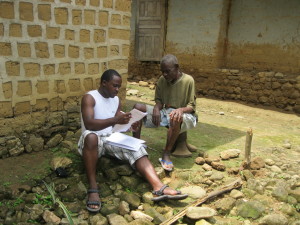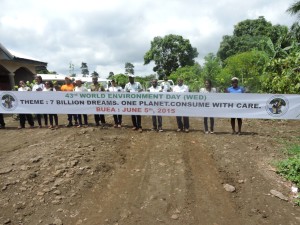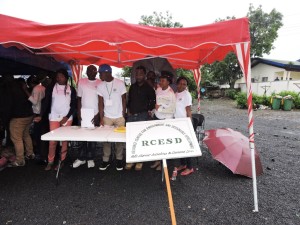
Mbunya Francis Nkemnyi January 15, 2021
The Problem of Safe Drinking Water
The phrase “water water everywhere, but not a drop to drink” is one which is now ringing in the minds of both the young and the old, and male and female as it is the talk of the world today, with numerous environmental musicians singing about it.
Water crisis is an issue which continues to be suffered by several countries of the world, with Cameroon not being an exception. Long, meandering lines are often seen at public taps with people fighting and even getting hurt just to have a glass of potable water for their household to drink. The irony of the situation is, there are stream courses behind our houses, under bridges on our streets, but getting water which can quench ones thirst remains a daydream to most people, thereby the phrase “water water everywhere but not a drop to drink”.
RCESD joined ICENECDEV on the 30/08/17 in a workshop to commemorate the Stockholm World Water Week, which has been celebrated around the world since 1991. This year, it was celebrated under the theme “Water and Waste- Reduce and Reuse”. Present during the workshop were representatives from the MINEPDED South West Region, representatives from Cam Water, WASH, other Non-profit Organizations in Buea and even individuals striving to ensure water sanitation. Having in mind that access to clean and safe water is not only a vital resource, but a fundamental human right for human health, this workshop brought NGOs in Buea together to enable exchange of information and experiences which would pave a way forward to ensure a better and sustainable water sanitation.
It is no mystery that it would take a collective effort to ensure available and safe drinking water. It all starts at the source; we have to protect and even rejuvenate local water catchments, improve on our water management programs, transform water and waste utilities, optimize industrial operations, develop and promote a sustainable ocean strategy. It is only when each individual strives to reduce the effect of their daily activities on the environment that we can start looking at a sustainable future for clean water.
Ada Acobta


